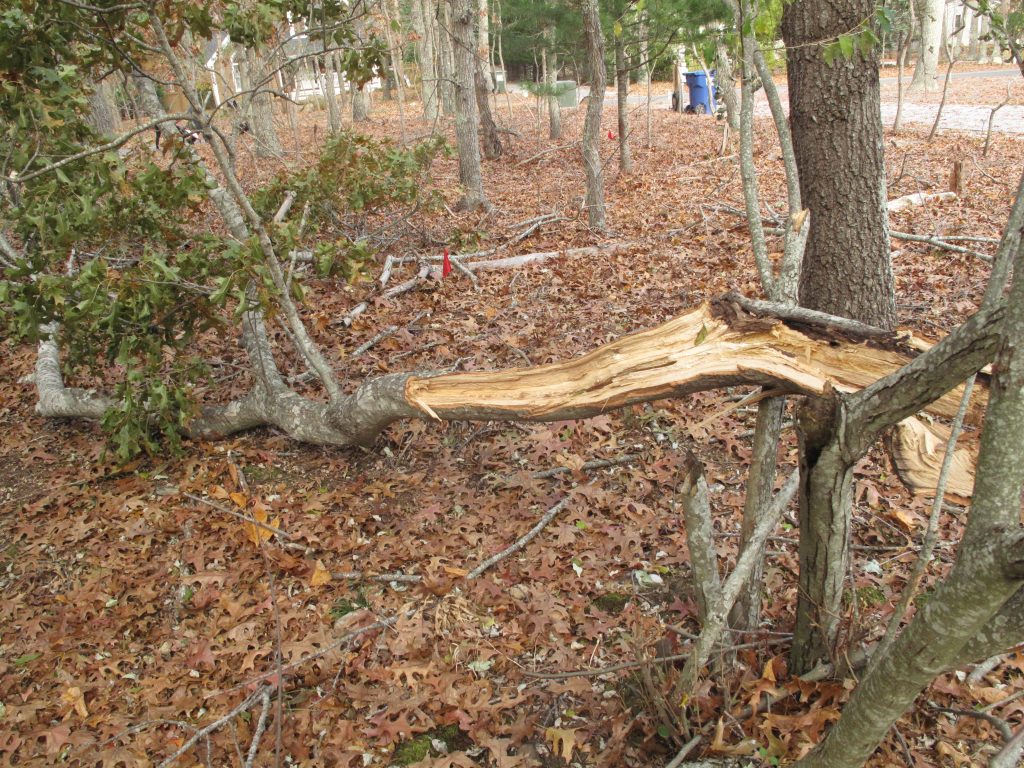
Wednesday, December 1
It’s a grim period. Most of the oak trees in our neighborhood have shed their leaves—but our yard guys haven’t yet come to blow and rake them away. So an inch-thick cover of brown coats the landscape. Meanwhile, as I have already noted, several trees in our yard were decapitated or broken during a mid-November windstorm. The gimpy near-dead still haunt our property, like wounded soldiers from a recently lost war.
And it’s cold—maybe seeming to be colder than it really is, thanks to the deep darkness that descends around 4:30 p.m.
I finished reading Colm Tóibín’s The Magician—an engaging fictional life of Thomas Mann—-then having nothing better at hand, I re-read George Orwell’s Down and Out in Paris and London. The latter work is—more than I remembered—a bit like Anthony Bourdain’s Kitchen Confidential, as it features an exposé of the grime and exploitation behind the scenes at fancy Paris restaurants, circa 1933.
“The dirt in the Hotel X…was revolting. Our cafeterie had year-old filth in all the dark corners, and the bread-bin was infested with cockroaches….Everywhere in the service quarters dirt festered—a secret vein of dirt, running through the great garish hotel like the intestines through a man’s body. Apart from the dirt, the patron swindled the customers wholeheartedly….In spite of all this, the Hotel X was one of the dozen most expensive hotels in Paris, and the customers paid startling prices.”
In Paris, after a period of near starvation, Orwell finds a job as a plongeur, or restaurant dishwasher. Later, back in London, awaiting a gig as a tutor, Orwell falls in with the ranks of the homeless. Their rootless, exhausting lives are neither worse nor much better than the lives of Paris’ occasional laborers.
What leavens Orwell’s account are his descriptions of Paris and London characters. His Paris confrere Boris hangs out with fellow Russian expats, shares his meagre funds with Orwell, and in between periods of absolute destitution, enjoys a riotous, often-sodden bacchanalia of a life.
Among London’s tramps, Orwell meets Paddy, who becomes a pal for a couple of weeks. “He had two subjects of conversation, the shame and come-down of being a tramp and the best way of getting a free meal….His ignorance was limitless and appalling. He once asked me, for instance, whether Napoleon lived before Jesus Christ or after.”
Orwell reports on the relative merits of various places where tramps can get a bed for a night. Most are awful, and those who try to sleep out of doors risk being arrested by the police as “vagbonds.” But compared with other options he has described, jail may not be so bad. Near the book’s end he tells us that one chum, Bozo, had been sentenced to 14 days in Wandsworth prison for begging. “I do not suppose prison worries him very much,” says the author.
Dinner: cheese omelettes, pumpkin bread, and green beans.
Entertainment: episodes of Ashes to Ashes on Britbox and Gentefied on Netflix.
